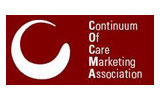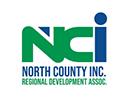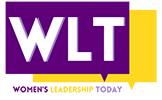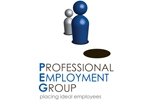
by Nancy Schnoebelen Imbs
published in ASAP
February 28, 2022
For most of us, finding a healthy work-life balance is a challenge. There seems to be a never-ending list of to-dos, deadlines, emails, projects, and meetings – not to mention often going the extra mile to do way more than is expected. You’re working longer and harder. And technology has not done us any favors since the immediate connection can allow work to creep into your personal time. What’s more, the pandemic and working remotely has been proven to blur professional and personal boundaries.
Sure, we’re assets to the company, great at our job, and want to be recognized for a job well done with a promotion or salary increase but at what cost? Working endless hours day after day shows commitment, motivation, and ambition but eventually your mind, body, and soul will eke out signs of burnout, fatigue, stress, and poor health. You’ll start to feel resentful and short-tempered, and when this happens, you’re no longer performing at your A-game.
“Never get so busy making a living that you forget to make a life.”
Enter work-life balance. Work-life balance is not a bad thing. In fact, just the opposite. Studies report when you take time for yourself, you’re more productive and happier, and the company’s bottom line is more attractive. A perfect partnership is win-win!
Work-life balance differs for everyone. There’s no one-size-fits-all approach. It’s dependent on your needs and lifestyle. The result is the same, however. A healthy work-life balance generates a re-energized, can-do professional who approaches his/her workday with passion and purpose.
Learn how to set limits. If you don’t create boundaries, work can leave you with no time for family and friends and activities you enjoy. Consider these strategies to strike a work-life balance that’s best for you.
1. Work Smarter
Allow yourself ample time to get things done. Don’t overschedule and overcommit yourself. Make a daily list of items that are immediate priorities such as submitting expense report or attending your child’s piano recital. Don’t put other tasks on the list if they are not pressing as you will likely want to tackle them so you “cross them off your list.” By doing so, you may avoid tending to the priorities, which can add more hours to your day. Stick to your schedule.
2. Keeping the Lines of Communication Open
Establishing a good relationship with your boss is key to developing a healthy work- life balance and flexibility in your workday. When keeping your manager informed of what’s important to you like, for example, being home for family dinners, attending your child’s special events, attending your educational classes on time after work, etc., will create an awareness of your personal priorities and work-related expectations.
3. Earn Trust and Credibility
Working hard and performing well in your job day after day are effective ways to show your boss and team that you are dependable and can be counted on to get the job done. Being flexible and willing to lend a hand are also great work attributes. They help to build trust and credibility. When you’ve earned these sought-after leadership stripes, it also allows you to create an effective work-life balance. Your boss and team respect you and value you as an employee and team member. They understand your commitments beyond work.
4. Leave Work at Work
Staying an extra 30 minutes can often turn into an hour or more. Unless it’s a work emergency or a pressing deadline, your work will be there waiting for you tomorrow. Develop a mental on-off switch so you can establish a comfortable transition between your professional and personal life. Additionally, creating this practice shows respect and allows you to devote cherished time with family or time for exercise, errands, dinner with friends, etc.
5. Learn to Say No
Flexing your no muscle when you are on overload is an excellent skill. If you’re asked to serve on a professional organization’s committee or board and know this commitment will eat at your family time, learn to say no respectfully. Something like, “Thank you for asking me to serve. Unfortunately, I’ve made a commitment to my family that I would spend more time with them and not take on extra responsibilities. I’m sure you can understand. Please think of me next year.”
6. Invest in Self-Care
We all know that feeling when we take time for ourselves to go for a walk, enjoy a massage, enjoy alone time, or whatever our heart desires. Absolute bliss! Self-care is important on many levels. From CEO to receptionist, we all need to practice self-care. It’s part of performing well and having a healthier you.










































































































